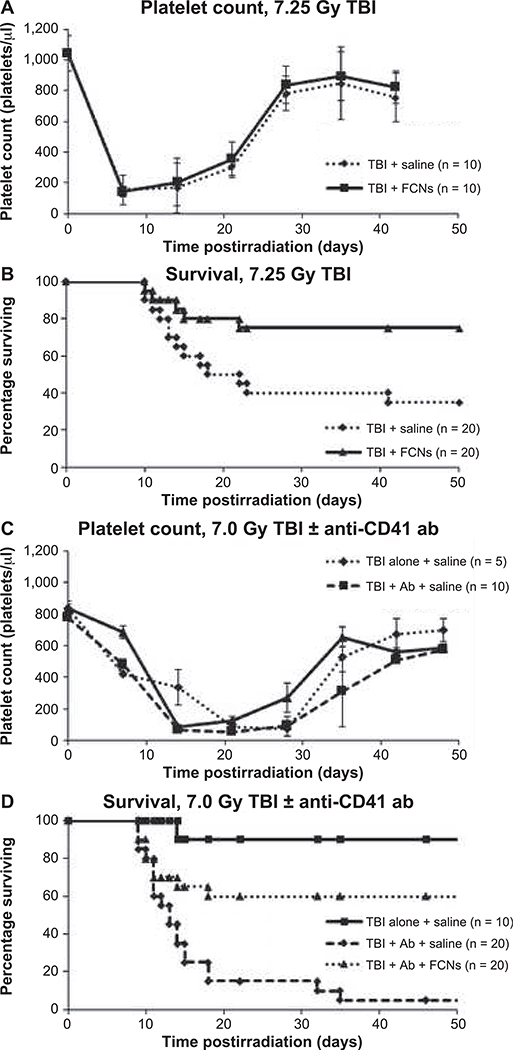FIG. 1.
FCNs reduce the risk of fatal hemorrhage in murine models of radiation-induced thrombocytopenia. FCNs significantly improved survival in two murine models of thrombocytopenia. In the first model BALB/c mice received 7.25 Gy TBI and then given either FCNs or saline control. Platelet counts were not significantly different between the two groups (panel A). Survival was significantly improved in the group receiving FCNs (panel B). In the second model, to look more specifically at thrombocytopenia, mice received 7.0 Gy TBI and were then treated with either saline alone, saline + anti-CD41 anti-platelet antibody, or FCNs + anti-CD41 antiplatelet antibody. Again, platelet counts were measured through the nadir and recovery. Those receiving anti-platelet antibody reached the nadir of their platelet counts more rapidly (panel C). Survival was significantly improved in the FCN-treated group (panel D).

